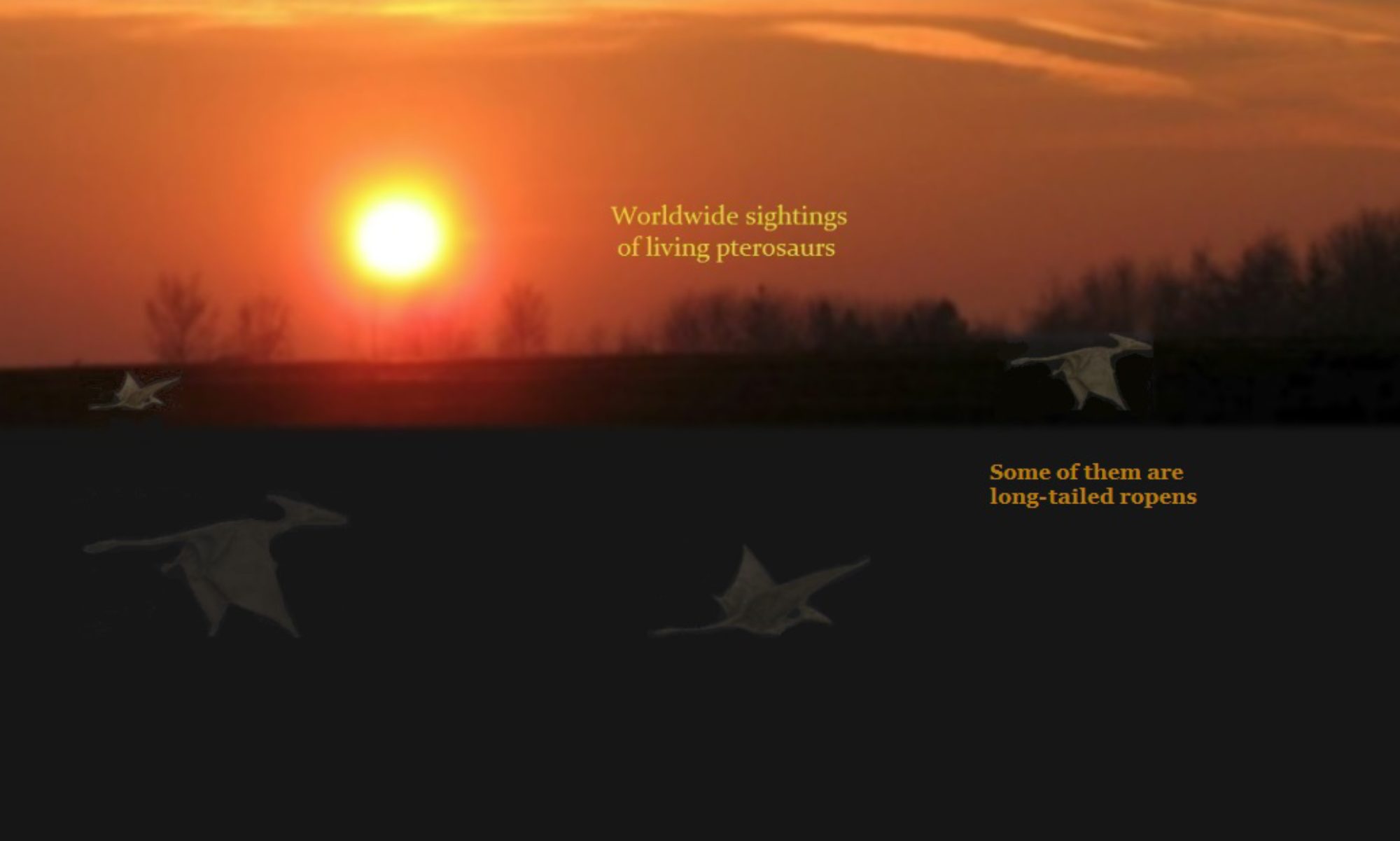Do you know someone who has seen something like a living pterosaur? Please contact me by email. If you would like to help with the research, do one or more of these:
- Link to this blog from your own blog or some other web page
- Let others know about this blog and modern-pterosaur research
- Purchase the nonfiction book “Live Pterosaurs in America” (by Jonathan Whitcomb)
- Comment on some of the posts you find on this blog
Thank you for your support.



[Corrected for spelling]
Pterosaur, the Eyewitness Says Dragon
A dragon is not a pterosaur! Maybe if it looked like a great flying leather bird they would have said pterosaur. Don’t assume dragons did not exist or are extinct. The Bible accounts in Job 40 and 41 of the behemoth and the leviathan (dragon) and those accounts were after the flood only 4000 years ago.
This is a good point, yet it needs to be taken in context. Living-pterosaur investigators have included the following persons:
Garth Guessman
David Woetzel
Paul Nation
Jonathan Whitcomb
Greg Hedger
Milt Marcey
Peter Beach
Others have been involved in various degrees and at various times, but the above seven have traveled to remote areas in search of modern pterosaurs or evidence of their glowing (bioluminescence) or eyewitness evidence, and they have been active in recent years. In general, we may have sometimes used the word “dragon” as if it were synonymous with “pterosaur.” Of course that is an oversimplification.
Yet some eyewitnesses of living pterosaurs do use the word “dragon” for an obvious Rhamphorhynchoid pterosaur. And other persons in ancient times have sometimes used the word “dragon” for a featherless flying creature which we also believe was a modern pterosaur.
Perhaps we should use the phrase “flying dragon” when referring to those flying creatures. That would differentiate potential pterosaurs from potential dinosaurs.
The point is this: The English word dragon is not a tightly controlled designation of a specific animal. In addition, various words, in various languages, may be translated into the word dragon. That’s why we need to concentrate more on the eyewitness descriptions, investigating the details of what people say about what they have encountered.